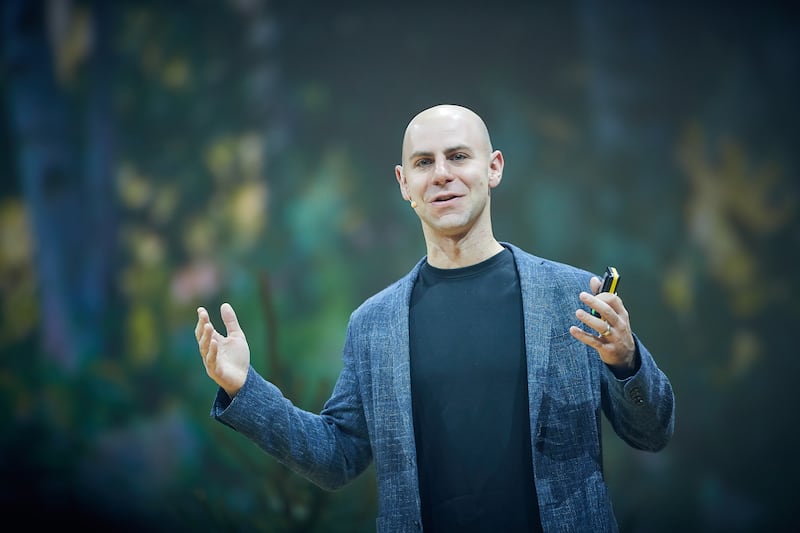Adam Grant, arguably the most famous organizational psychologist ever, is a top-rated professor at the Wharton School of Business at the University of Pennsylvania. He is also the author of six books which have sold millions of copies, including the bestsellers “Hidden Potential,” “Think Again,” “Give and Take” and “Originals.”
Grant is also one of the world’s most sought-after consultants, having worked with Google, the National Basketball Association, Bridgewater and the Gates Foundation. He has worked at the Pentagon, been honored by the World Economic Forum, and has even appeared on the television show “Billions.”
In other words, Adam has succeeded by every professional metric. And it’s because of this success that he’s especially grateful that he once ignored his mom.
I teach leadership to undergraduates at the University of Kansas, and I have a podcast where I interview academics, athletes and business leaders. In a recent interview with Grant, I asked him to think back on the lessons he’s learned over the course of his career and share the lessons that he most values.
Grant responded, “Be careful about listening to other people’s advice. Because they can only tell you what’s worked for them, and it may or may not apply to you.”
It’s a simple idea, but one we often forget.
He continued, “I think so many people are obsessed with just collecting wisdom and lessons from people around them, forgetting that other people have not taken the exact same path. They don’t share your exact weaknesses, your identical strengths. And so, it’s hard for them to give customized guidance.”
That’s exactly right. I teach students that leadership success depends on more than just the leader. It also depends on the situation and context. And no two situations are ever exactly alike. What worked for someone else might not work for you because circumstances are always changing. It’s one of the reasons biographies of successful people may not be as relevant to us as we might assume. Their advice to us is likely more contextual than we realize.

Grant then spoke about his mom’s advice that he ignored: “I had no idea what I wanted to do with my career. And then the summer before my senior year of college, it clicked, and I realized I loved psychology. I was passionate about sharing knowledge, and I wanted to pay forward some of the extraordinary educational experiences that my professors had created for me. And I was so excited. I told my mom that I wanted to be a professor and she said, ‘Well, don’t do that. Teaching is boring.’”
Grant’s mom was a teacher, and she didn’t like to stand up and perform every day, so she assumed her son wouldn’t enjoy that either. But what she didn’t realize is that college teaching and high school teaching are worlds apart. Grant wouldn’t be in the classroom all day, every day. He would be choosing the lessons he taught, and he would be mixing in research, writing, and all kinds of other projects. He would do so much more than teach.
In other words, Grant’s mom — who brought him into this world and knew him as well as anyone — still got the advice wrong for her son, even though to her, it made perfect sense.
I can relate to Grant’s lesson because I struggled finding a career as well. At age 29 I attended law school, at age 32 I started a Ph.D. program, and at age 37 I started a post-doctoral program.. The conventional wisdom was that I was too old for each of these programs. Yet every day I’m grateful that I ignored the well-meaning advice from others because my situation was different than theirs.
Of course, we should seek advice from people we respect. But we shouldn’t follow it blindly. We should also appropriately weight our own experience and instincts. If the mother of the most famous organizational psychologist ever can miss the mark, it shouldn’t surprise us when others’ advice for us is wrong as well.
Nate Meikle, a former football player and sideline reporter for BYU, is a professor at the University of Kansas where he teaches leadership and ethics. He is also the host of the podcast, Meikles & Dimes, which is dedicated to the simple, practical and underappreciated. His full interview with Adam Grant is available on Apple Podcasts and Spotify.

